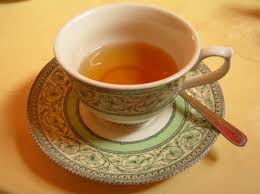With your permission, I would like to debate some more Persian stereotypes.
• For anyone who says Persians are always late: It’s not that Persians are late, per se. You just have to know Persian time. I had a lot of trouble mastering it myself, despite being Persian. I have gazed upon my fair share of empty parking lots and circled many driveways waiting for Persian time. So, I will let you in on the secret.
Persian Time for Arrival = Time on the Invite + 30 Percent of Total Time of Event.
So, let’s say you’re invited to a Persian event from 4 to 6 p.m. The total time is 120 minutes, so you must arrive 36 minutes late, at 4:36 p.m. Why only party for 84 minutes, you ask? This takes us back to tarof. Persians are so genuinely kind and sensitive that they don’t like to overburden their host—and they hate for their host to rush to prepare. So, they come a little late. Pretty classy!
• For anyone who says Persians drink hot tea in the summer: It’s actually true. And, I’m guilty as charged. Even in extreme heat, I must have hot tea after a meal. In the winter, forget about it. Even my 10-year-old’s favorite drink is boiling water.
Tea has been the cultural beverage for Persians for decades. It actually has many healthful benefits and supports digestion. But, there is more to it.
In Iran’s modest households, there were countless families who did not have ample food to share. This prompted the community to set the uniform standard of serving tea to guests. Thereby, no one would be deprived the pleasure of having guests, no one would suffer financial burden due to the guests, no one would feel embarrassed for not having served the guests and no one would fail to show proper respect towards guests. I am compelled to add that I fervently hope that tea will continue to serve as the beverage of choice for our community, and that we will forever be motivated by sensitivity and love for one another.
• For anyone who says Persians don’t vote: The presence of Persians in the voting booths has increased exponentially in recent years. It is true that originally upon entering this country, Persian citizens were not accustomed to the luxury of voting. However, nowadays, Persian communities invite candidates for a visit so that members can make informed decisions and a positive impact in public elections. Plus, our communities embrace democracy by holding their own elections to vote for community board members, Sisterhood leaders and youth committee heads.
• For anyone who says Persians spoil their children: Our children are our everything. Unfortunately, Persians have not been immune to the emphasis on excessive materialism that occurs in this blessed region. Perhaps, we do all spoil our children. I can only say that I hope the memory of the tears and prayers that our grandparents shed will keep our children humble, appreciative and grounded.
In the spirit of the Jewish New Year, I would like to offer my heartfelt apology to anyone who I may have offended in any of my writings, and for any gossip that I may have ignited. That was never my intention. My main objective was to prove to myself and to my children that anyone can accomplish anything they’ve dreamed of—even those devoid of any natural talent—even a shy mom like me. Wishing you all a sweet new year!
Read “Confessions of a Persian Mom: Addressing Stereotypes, Part 1.”


































